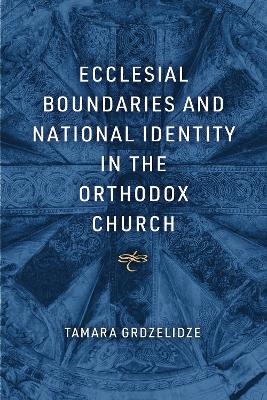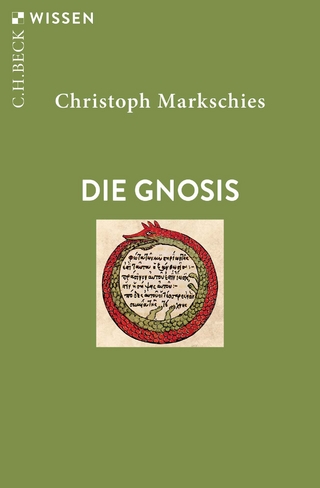
Ecclesial Boundaries and National Identity in the Orthodox Church
Seiten
2023
University of Notre Dame Press (Verlag)
978-0-268-20498-3 (ISBN)
University of Notre Dame Press (Verlag)
978-0-268-20498-3 (ISBN)
Grdzelidze’s study evaluates the present state of ecclesiology in the Orthodox Church, focusing on the history of autocephaly and its relationship with the rise of religious nationalism.
To date, the Orthodox Church has not sufficiently addressed the pressing problem of religious nationalism. Tamara Grdzelidze’s Ecclesial Boundaries and National Identity in the Orthodox Church fills this lacuna, offering a solution to the ecclesiological problems posed by the rise of group-related sentiment in Orthodox communities.
Grdzelidze’s monograph begins with an examination of the history of autocephaly and synodality in the Orthodox Church. As she explains, the political autonomy of local churches in the Eastern Roman Empire, which was later transformed into autocephaly, instinctively carried the kernel of group-related sentiments, whether national or ethnic. Over time, such sentiments have given rise to religious nationalism, which has further resulted in the inability of autocephalous churches to disengage from their national political involvements. Consequently, Orthodox Churches are unable to conduct a conversation on the hermeneutics of authority.
After sketching this historical background, Grdzelidze offers a solution to this ecclesiological problem, proposing a eucharistic hermeneutics by which the concepts of autocephaly and synodality might be preserved from misappropriation by religious nationalists. This proposal is centered on the principle that the Church represents the Body of Christ and thus embraces the whole people of God and the whole of God’s creation through the sacramental life. Ultimately, this eucharistic mode of visioning the Church furnishes a solution to the crisis of borders and boundaries in the Orthodox Church.
To date, the Orthodox Church has not sufficiently addressed the pressing problem of religious nationalism. Tamara Grdzelidze’s Ecclesial Boundaries and National Identity in the Orthodox Church fills this lacuna, offering a solution to the ecclesiological problems posed by the rise of group-related sentiment in Orthodox communities.
Grdzelidze’s monograph begins with an examination of the history of autocephaly and synodality in the Orthodox Church. As she explains, the political autonomy of local churches in the Eastern Roman Empire, which was later transformed into autocephaly, instinctively carried the kernel of group-related sentiments, whether national or ethnic. Over time, such sentiments have given rise to religious nationalism, which has further resulted in the inability of autocephalous churches to disengage from their national political involvements. Consequently, Orthodox Churches are unable to conduct a conversation on the hermeneutics of authority.
After sketching this historical background, Grdzelidze offers a solution to this ecclesiological problem, proposing a eucharistic hermeneutics by which the concepts of autocephaly and synodality might be preserved from misappropriation by religious nationalists. This proposal is centered on the principle that the Church represents the Body of Christ and thus embraces the whole people of God and the whole of God’s creation through the sacramental life. Ultimately, this eucharistic mode of visioning the Church furnishes a solution to the crisis of borders and boundaries in the Orthodox Church.
Tamara Grdzelidze is a professor of religious studies at Ilia State University in Tbilisi and former ambassador of Georgia to the Holy See. She is the author and translator of Georgian Monks on Mount Athos: Two Eleventh-Century Lives of the Hegoumenoi of Iviron.
Contents
Introduction
1. Emerging Ecclesial Boundaries in the Eastern Roman Empire
2. National Borders and Secular Boundaries
3. Autocephaly and a Secular Age: painful adaptation to Pluralism
4. Autocephaly and Studying Nationalism/studies on N
5. Contextualization of Autocephaly:
Russian Orthodox Church
Orthodox Church of Georgia
Orthodox Church of Ukraine
6. Eucharistic Vision as Hermeneutics for Orthodox Synodality
Conclusions
| Erscheinungsdatum | 31.03.2023 |
|---|---|
| Verlagsort | Notre Dame IN |
| Sprache | englisch |
| Maße | 152 x 229 mm |
| Themenwelt | Geschichte ► Teilgebiete der Geschichte ► Religionsgeschichte |
| Religion / Theologie ► Christentum ► Kirchengeschichte | |
| ISBN-10 | 0-268-20498-5 / 0268204985 |
| ISBN-13 | 978-0-268-20498-3 / 9780268204983 |
| Zustand | Neuware |
| Informationen gemäß Produktsicherheitsverordnung (GPSR) | |
| Haben Sie eine Frage zum Produkt? |
Mehr entdecken
aus dem Bereich
aus dem Bereich
Von den Anfängen bis zur Gegenwart
Buch | Hardcover (2022)
C.H.Beck (Verlag)
CHF 47,60
warum die Religionen erst im Mittelalter entstanden sind
Buch | Hardcover (2024)
C.H.Beck (Verlag)
CHF 53,20


